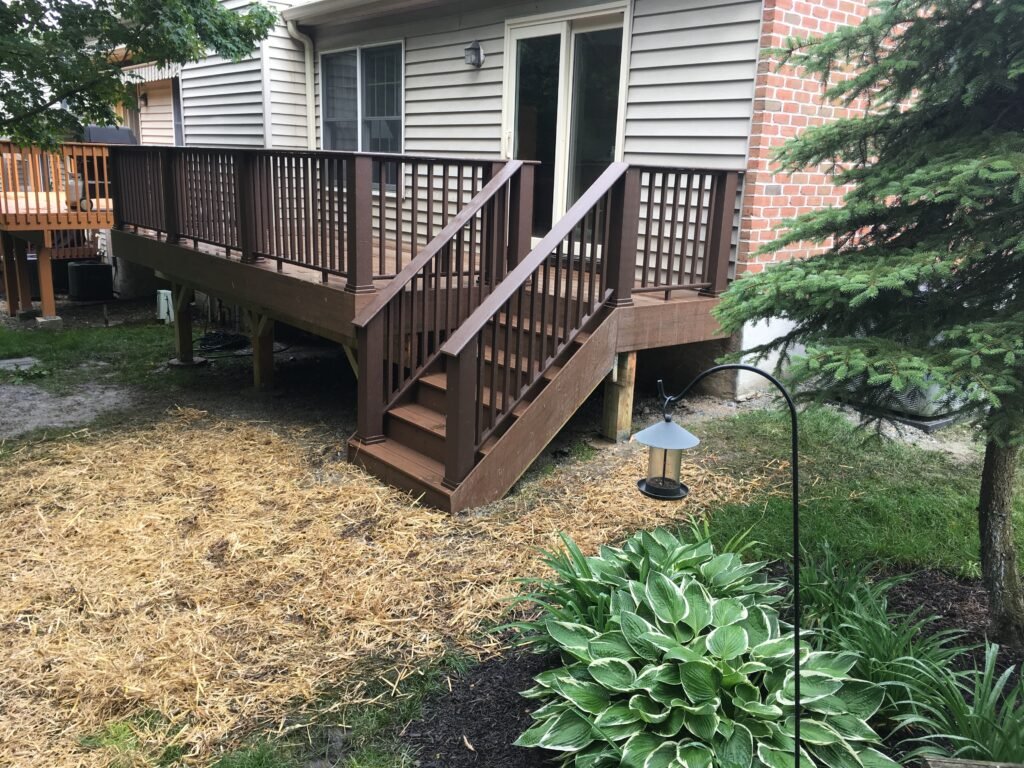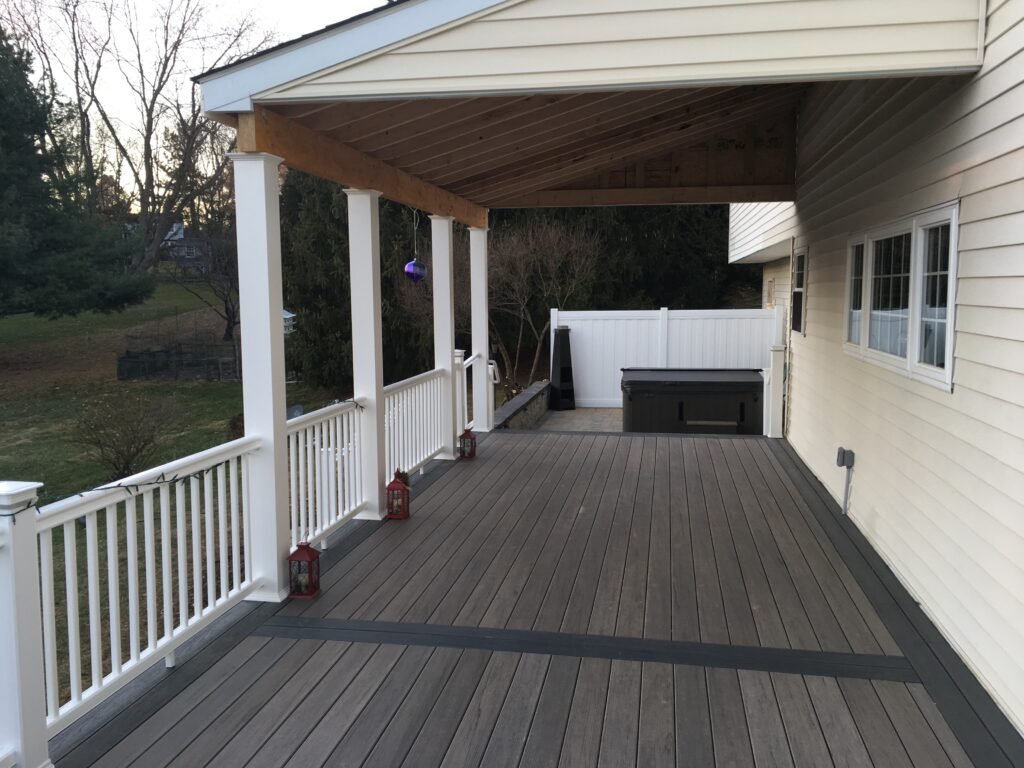Is Your Downingtown Deck a Safety Hazard? How to Spot the Serious Signs That Go Beyond a Simple Splinter.
INTRODUCTION
Your deck is more than just a piece of lumber and hardware; it’s an integral part of your home and a beloved space for family gatherings and quiet evenings. It’s where countless memories are made. But what if the very foundation of those memories is quietly, dangerously deteriorating?
Most homeowners in Downingtown are aware of the common deck issues: a stray splinter, a faded board, or a creaky step. These are frustrating, but they’re not the biggest threats. The real danger lies in the signs you can’t easily see—the quiet rot and structural fatigue that can turn a cherished gathering space into a serious safety hazard. At Brian Hunter Decks, we’ve dedicated ourselves to building and maintaining safe, beautiful decks for our neighbors in Chester County. As your local Deck Builder, we’re here to share a professional’s perspective on what to look for and why a thorough inspection is critical

The Obvious vs. The Critical
It’s easy to focus on the surface-level issues. You might spend time staining a faded board or sanding down a rough patch. While these are important for aesthetics and minor safety, they can distract from the more critical problems happening beneath the surface. The real warning signs of a failing deck are often hidden or easily dismissed.
For example, a wobbly railing might just seem like a loose screw. But a professional sees it as a potential sign of rot in the post or a failing fastener. A deck that feels “spongy” underfoot isn’t just a sign of an old board—it’s an alarm bell for widespread water damage and decay. Ignoring these seemingly small issues can have catastrophic consequences, which is why a professional eye is crucial for any kind of Deck Renovation or Deck Repair.
A Pro’s Guide to Key Warning Signs
When our Outdoor Project Experts perform an inspection, we go beyond the deck boards and look at the core structure. Here’s what we look for:
- The Ledger Board: This is the most critical part of an attached deck. It’s the board that connects your deck directly to your house. A ledger board that is improperly attached or rotted from water damage can cause the entire deck to pull away from your home and collapse. We inspect for loose fasteners, rust, and signs of water infiltration around the connection point, a sign that the flashing has failed.
- Deck Posts and Footings: The posts are the legs of your deck, holding up its entire weight. We check for any signs of rot where the posts meet the ground, as well as any shifting or sinking. A post that isn’t anchored properly or is showing signs of decay can be a major structural failure point.
- Joists and Beams: These are the horizontal elements of your Deck Framing and Support system. If you notice any sagging or soft spots on the deck surface, it often means that the joists underneath are rotten or have been weakened by insect damage. We check for cracks or signs of decay that could compromise the entire structure.
- Fasteners: The bolts, screws, and nails that hold your deck together are under constant stress from weight and weather. We look for rusted or loose hardware that may no longer be securely fastened. Failing fasteners are a leading cause of deck failure and can be a silent, dangerous threat.

The High Cost of Waiting
Waiting to address these problems is a gamble with your family’s safety. But beyond the obvious risks, there’s a significant financial cost to putting off a repair. What might have been a simple and affordable Deck Repair today could turn into an expensive and complex full deck replacement a year from now.
A simple board replacement, flashing repair, or a few new bolts can cost a few hundred dollars. In contrast, a complete Deck Construction project can easily run into the tens of thousands. Investing in a professional inspection and timely repairs for your Residential Deck Project is the most fiscally responsible decision you can make. It protects not just your family, but also your home’s value. Don’t let your cherished space turn into a money pit.
CONCLUSION
Your deck is a place of joy, not a source of worry. By understanding the critical warning signs that go beyond the surface, you can be proactive about its health and safety. Don’t take a chance with a DIY fix or, worse, by ignoring the problem entirely.
As the leading Outdoor Project Experts in the Downingtown area, Brian Hunter Decks is committed to building Built-to-Last Decks and ensuring existing ones remain safe and secure. If you’ve spotted any of these signs, or if it’s been more than a year since you’ve had a professional look at your deck, it’s time for an inspection. Contact us today for a free consultation and let us help you keep your deck strong and ready for many more summers to come.
Is Your Downingtown Deck a Safety Hazard? How to Spot the Serious Signs That Go Beyond a Simple Splinter.
Is Your Downingtown Deck a Safety Hazard? How to Spot the Serious Signs That Go Beyond a Simple Splinter. INTRODUCTION Your deck is more than
